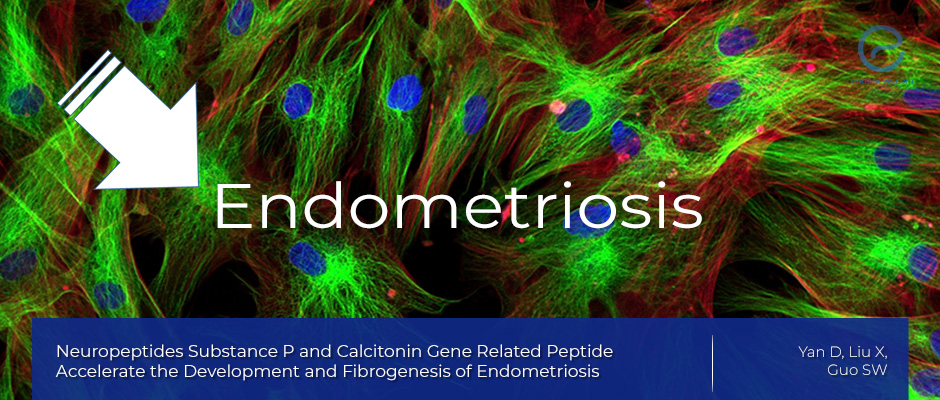Study Sheds Light on Physiological Processes Associated with Endometriosis
Oct 18, 2019
Sensory nerves may actually be promoting the development of endometriosis aside from sending pain signals to the brain.
Key Points
Highlights:
- Sensory nerves are involved in the development and spread of endometriosis lesions.
Importance:
- A better understanding of the processes associated with the development of endometriosis can help researchers devise new ways of treating the disease.
What's done here:
- Using human and rat cells grown in the laboratory, researchers analyzed cellular events that happen in response to certain stimuli.
Key results:
- Two proteins called neuropeptides substance P (SP) and calcitonin gene-related peptide (CGRP) produced by the peripheral nerves induce epithelial to mesenchymal transition (EMT), fibroblast to myofibroblast transdifferentiation (FMT), and turn stromal cells into smooth muscle cells in endometriotic lesions via their receptors neurokinin receptor 1 (NK1R), calcitonin receptor-like receptor (CRLR), and receptor activity modifying protein 1 (RAMP-1).
- Neutralizing these signaling pathways abolishes all three cellular processes.
Limitations:
- These are experiments conducted in the laboratory and might not exactly reflect the biological events that are happening in women’s bodies.
- More research is needed in order to translate these findings into clinical applications.
Lay Summary
Sensory nerves play an important role in the development of endometriosis as well as fibrosis, confirms a study by Chinese researchers.
A better understanding of physiological processes associated with the development of endometriosis can help researchers devise new ways to treat the disease.
Sensory nerves are nerves that are involved in carrying sensory information such as pain and other sensations from different parts of the body to the brain.
Researchers know that endometriotic lesions are hyper-innervated, i.e. have excessive nervous tissue around them, sending excess pain signals to the brain, thus causing endometriosis to be painful.
This study confirms that aside from their role in sending pain signals to the brain, sensory nerves also promote the development of endometriosis.
The team led by Dr. Sun-Wei Guo at Fudan University, in Shanghai, China showed that two proteins called neuropeptides substance P (SP) and calcitonin gene-related peptide (CGRP) produced by the nervous system promote fibrosis by changing the shape and nature of cells.
More specifically, they induce epithelial to mesenchymal transition (EMT), the process by which epithelial cells or those that normally cover the internal and external body surfaces are turned into mesenchymal cells, which are able to migrate and differentiate into other cell types.
Moreover, SP and CGRP drive the fibroblast to myofibroblast transdifferentiation (FMT). Fibroblasts are cells that play a critical role in wound healing. Myofibroblasts, on the other hand, are a type of cell between a fibroblast and a smooth muscle cell.
Finally, these two proteins turn connective tissue cells into smooth muscle cells in endometriotic lesions.
These changes result in cells to migrate and invade surrounding tissues more, stick to each other more, and to start producing collagen, the major component of connective tissues, eventually leading to fibrosis.
SP and CGRP exert their activity via different receptors that are found at high levels on the nervous system including the sensory nerves. In fact, the researchers were able to show that neutralizing these receptors halted these cellular processes.
According to the authors, this study “gives more credence to the idea that ectopic endometrium is fundamentally wounds that go through repeated tissue injury and repair.”
Research Source: https://www.ncbi.nlm.nih.gov/pubmed/30804432
sensory nerves cellular differentiation development of endometriosis cell signaling

